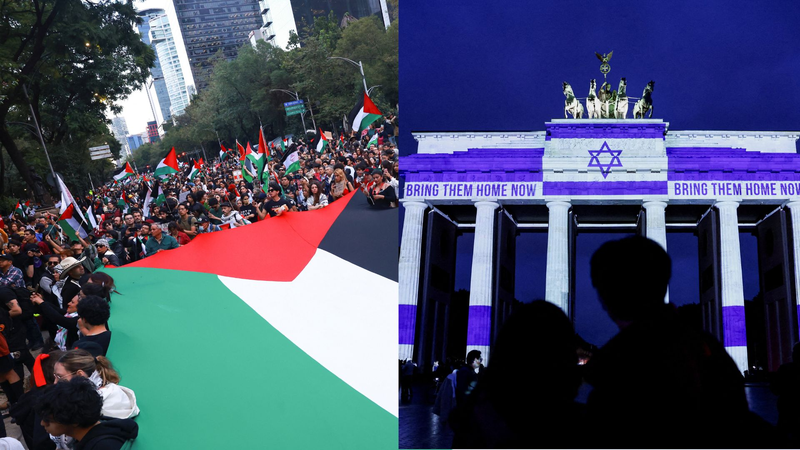Optimism is bubbling up in indirect negotiations between Hamas and Israel, as each side navigates a war trying to end the Gaza conflict. Hamas says it's hopeful after submitting its list of prisoners for release, a step toward freeing hostages currently held in Gaza.
Meanwhile, the second convoy of international aid vessels en route to Gaza was intercepted by Israeli forces in international waters. The action highlights the struggle to deliver humanitarian relief to a war-ravaged region. Pro-Palestinian protests erupted in cities from London to Jakarta, reflecting a global surge of solidarity with Gaza residents.
Back home, communities on both sides mark solemn anniversaries. In Israel, events commemorate the Hamas attack that sparked the war. In Berlin, mourners at the Brandenburg Gate placed stones and photos of victims in a vigil echoing Jewish remembrance traditions.
On the diplomatic front, U.S. President Donald Trump has asked Türkiye to persuade Hamas to accept his peace plan. Within Jerusalem, Israel's National Security Minister Itamar Ben-Gvir prayed at the flashpoint Al-Aqsa mosque compound, calling on Prime Minister Benjamin Netanyahu to push for complete victory over Hamas.
The human toll remains stark. Medical staff and civilians continue to face danger: sources at Nasser Hospital say at least one person died when forces opened fire near a Rafah aid distribution centre. Gaza's Government Media Office reports that the Israeli army has killed two medical personnel and one journalist every three days.
As negotiations, global pressure, and frontline realities converge, the world watches closely. Will optimistic talks turn the tide, or will humanitarian and security challenges deepen the crisis? The next moves by negotiators – and responses from the street – will shape the conflict's trajectory and the lives of millions in Gaza.
Reference(s):
Hamas talks 'optimism', as second flotilla group intercepted by Israel
cgtn.com



